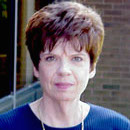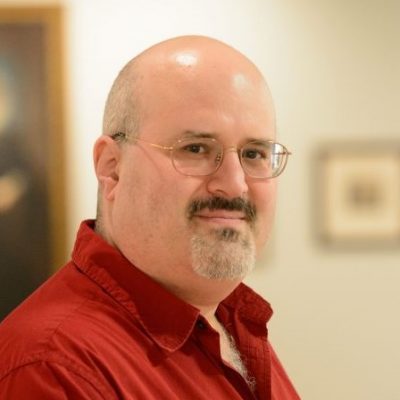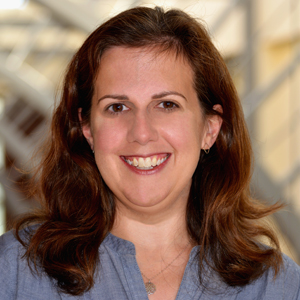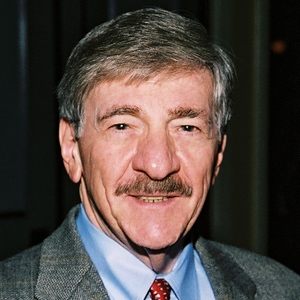





Dr. E. Jean Gubbins is Professor in the Department of Educational Psychology at the University of Connecticut. Through grant funding from the United States Department of Education for The National Research Center on the Gifted and Talented (NRC/GT), Dr. Gubbins implemented research studies focusing on the curricular strategies and practices in science, technology, engineering and mathematics (STEM) high schools, reading and mathematics education in elementary schools, professional development, and gifted education pedagogy for all students. Currently, she is the Associate Director for our grant funded center, National Center for Research on Gifted Education (NCRGE), focusing on exemplary practices in identification and programming for gifted and talented students from underrepresented groups. She is the Principal Investigator of Thinking Like Mathematicians: Challenging All Grade 3 Students and co-Principal Investigator of Project BUMP UP: Building Up Mathematics Proficiency Utilizing Push-in. Both research projects are funded under the Jacob K. Javits Gifted Education Program. Dr. Gubbins’ expertise in program evaluation has allowed her to conduct over 50 program evaluations for school districts around the country and implement literacy and arts-integrated evaluations for non-profit organizations. Her research, evaluation, and teaching interests stem from prior experiences as a classroom teacher, teacher of gifted and talented students, evaluation consultant, and professional developer. She teaches graduate courses in gifted education and talent development related to identification, programming, curriculum development, and program evaluation. Articles, book chapters, edited books, and an e-Book highlight her range of products within the field of gifted and talented education. (Not accepting new Ph.D. students)
James C. Kaufman is a Professor of Educational Psychology at the University of Connecticut. He is the author/editor of more than 45 books, including Creativity 101 (2nd Edition, 2016) and the Cambridge Handbook of Creativity (2nd Edition, with Robert Sternberg; 2019). Kaufman has also published books with his wife, Allison, on animal creativity and pseudoscience and a book about terrible baseball pitchers with his father, Alan. He has published more than 300 papers, including the Four-C Model of Creativity (with Ron Beghetto) and the study that spawned the “Sylvia Plath Effect.” He is a past president of Division 10 (Society for Psychology of Aesthetics, Creativity, & the Arts) of the American Psychological Association (APA). James has won many awards, including Mensa’s research award, the Torrance Award from the National Association for Gifted Children, and APA’s Berlyne, Arnheim, and Farnsworth awards. He co-founded two major journals (Psychology of Aesthetics, Creativity, and the Arts and Psychology of Popular Media Culture). Kaufman has tested Dr. Sanjay Gupta’s creativity on CNN, appeared in the hit Australia show Redesign Your Brain, and narrated the comic book documentary Independents. His musical Discovering Magenta played NYC and its cast album is available on CD and most streaming services. Kaufman has blended his theatre and creativity interests in a forthcoming book with composer Dana Rowe, Creating Your Spotlight: Lessons from Harold Hill, Evita, and Hamilton.
Dr. Catherine Little is a Professor in Giftedness, Creativity, and Talent Development in the Department of Educational Psychology at the University of Connecticut. She joined the UConn faculty in 2004 and teaches courses in gifted education and in the undergraduate Honors Program, and she was recognized as a University Teaching Fellow in 2012. She serves on the University’s Honors Board of Associate Directors and as one of the Honors Advisors for students in the Neag School of Education. Dr. Little’s research interests include professional learning, differentiation of curriculum and instruction for advanced learners, and classroom questioning practices. She co-edited the text Content-Based Curriculum for High-Ability Learners with Joyce VanTassel-Baska. She has been the Project Director for Project SPARK and Project LIFT, two recent Javits-funded initiatives focused on working with schools and teachers to recognize and respond to advanced academic potential in the early grades, particularly in students from underserved populations.
Dr. Sally M. Reis holds the Letitia Neag Chair in Educational Psychology, is a Board of Trustees Distinguished Professor, and is the former Vice Provost for Academic Affairs at the Neag School of Education at University of Connecticut. She also served as Principal Investigator of the National Research Center on the Gifted and Talented and Department Head of the Educational Psychology Department. She was a classroom teacher in public education as well as an administrator before her work at UConn. She has authored and co-authored more than 270 articles, books, book chapters, monographs and technical reports, and worked in a research team that has generated over 50 million dollars in grants in the last 15 years. Her scholarship is diverse and broad, as summarized by her numerous articles, books, book chapters, monographs, and technical reports. Her specialized research interests are related to diverse populations of gifted and talented students, including students with learning disabilities, gifted females, and culturally and linguistically diverse talented students. She is a Distinguished Scholar of the National Association for Gifted Children and a fellow of Division 15 of The American Psychological Association. Her research interests are related to gifted education and talent development , as well as special populations of gifted and talented students, including students with learning disabilities, gifted girls and women, and diverse groups of talented students who are often underserved. She has won many professional awards, including the Distinguished Scholar Award by the National Association for Gifted Children, for her scholarly contributions to the field. She won the Neag School of Education Outstanding Research Award and the Educator of the Year Award from Future Problem Solving. Among her proudest accomplishments, besides her family, is her work on the Schoolwide Enrichment Model and her leadership of Confratute, with her partner and husband, Joseph Renzulli, for over four decades. (Not accepting new Ph.D. students)
Dr. Joseph Renzulli served as the Director of The National Research Center on the Gifted and Talented for 22 years. He has spent his 50-year career on research focused on the identification and development of creativity and giftedness in young people and the use of gifted education pedagogy to increase engagement and achievement for all children. His work on the Three Ring Conception of Giftedness and the Enrichment Triad Model in the 1970s were among the first efforts to promote problem-based learning in the field, and his work on Curriculum Compacting, and the Multiple Menu Model for Curriculum Development were pioneering efforts in these areas. He is a Board of Trustees Distinguished Professor and also served as a Senior Research Associate for the White House Task Force on Education for the Gifted and Talented. Dr. Renzulli is a Fellow in the American Psychological Association, and he has received distinguished research awards from the National Association for Gifted Children, the University of Connecticut and the Harold W. McGraw Award For Innovation In Education. Joe has contributed hundreds of books, book chapters, articles, and monographs to the professional literature. His books and articles have been translated into over 15 languages and he has lectured in approximately 30 countries. In 2019 Dr. Renzulli was voted number 12 among the 30 most influential educators in the world (https://globalgurus.org/education-gurus-30/). Although Dr. Renzulli has generated millions of dollars in research and training grants and won many other awards, he lists as his most important accomplishment the summer Confratute program that he and Dr. Sally Reis have conducted at the University of Connecticut for 43 years and that has served more than 25,000 educators from around the world. (Not accepting new Ph.D. students)
Dr. Del Siegle holds the Lynn and Ray Neag Chair for Gifted Education and Talent Development and serves as director of the Renzulli Center for Creativity, Gifted Education, and Talent Development. He also serves as principal investigator and director of the National Center for Research on Gifted Education (NCRGE), where he studies best practices for identifying and serving gifted students from underserved populations. He serves as PI and project director for Project BUMP UP (Building Up Mathematics Proficiency Utilizing Push In), which explores ways to ensure talented mathematics students make continuous progress by providing gifted education push-in services in their classroom. He is also PI for Project EAGLE (Eliciting Advanced Gifted Learning Evidence), which is developing a dynamic approach to equitably identify gifted ELs in the familiar context of classroom math instruction. He is co-creator of the Achievement Orientation Model, which addresses motivation issues and underachievement. Dr. Siegle is a well-respected leader in gifted and talented education. He is a past president of the National Association for Gifted Children, past board member of the Council for Exceptional Children–The Association for the Gifted, past chair of the Research on Giftedness, Creativity, and Talent SIG of AERA, 2011 recipient of the NAGC Distinguished Service Award, 2018 recipient of the NAGC Distinguished Scholar Award, and 2021 Ann F. Isaacs Founder’s Memorial Award. He was a founding co-editor of the Journal of Advanced Academics and co-editor of Gifted Child Quarterly. Dr. Siegle is coauthor of the 6th and 7th editions of Education of the Gifted and Talented. In 2016, he received the Palmarium Award, which is given yearly to the individual most exemplifying the vision of a future in which giftedness will be understood, embraced, and systematically nurtured. He also served as Co-PI for the Javits Act-funded Project EDGE in Montana and Co-PI for the Increasing Academic Achievement Study for the former national research center, NRC/GT. Prior to becoming a professor, Del worked with gifted and talented students in Montana.